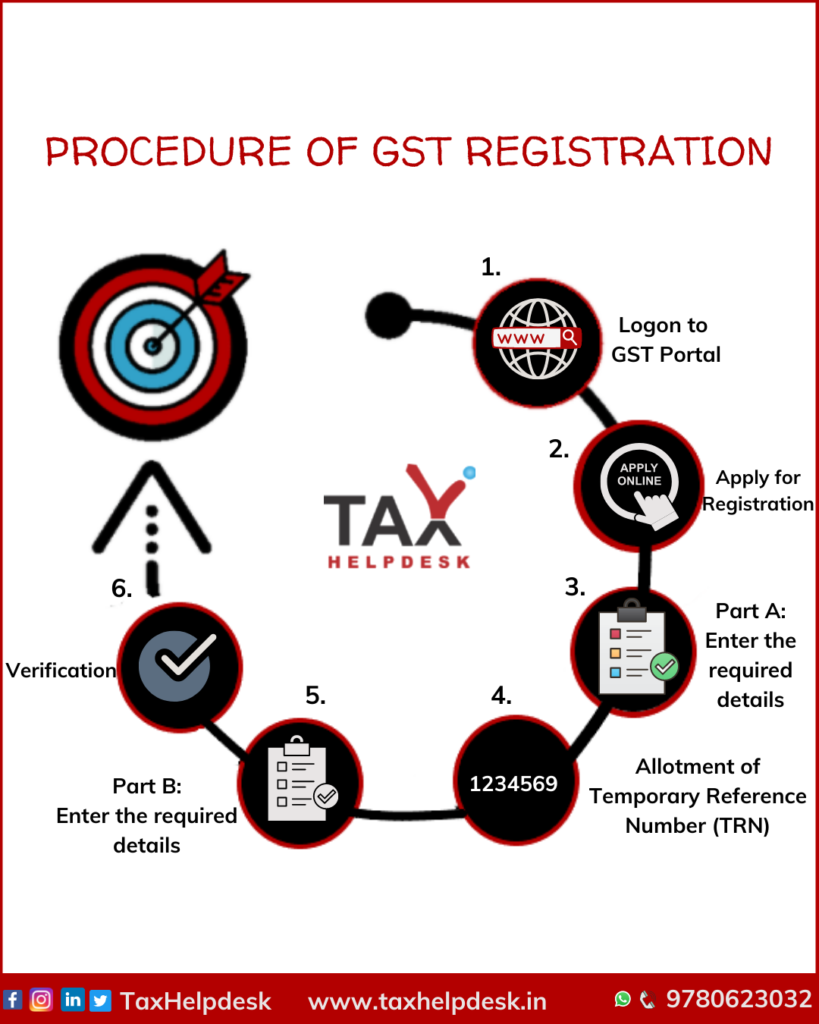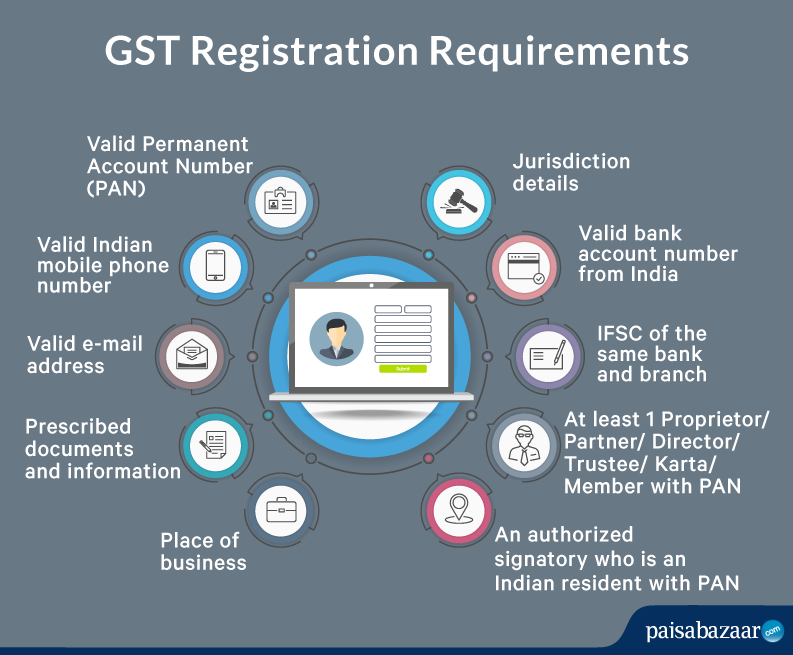Navigating the Intricacies of GST Enrollment: A Comprehensive Overview for Business Owners
Navigating the complexities of GST enrollment can be a difficult task for many company owner, as it entails a myriad of guidelines, guidelines, and refines that need to be followed. With the ever-evolving landscape of tax regulations, ensuring conformity and recognizing the complexities of GST enrollment is essential for the smooth procedure of any kind of organization. From establishing eligibility and gathering the needed documentation to maximizing procedures for maximum performance, this detailed overview aims to offer business proprietors with the understanding and tools required to browse the complexities of GST registration successfully.
Eligibility for GST Enrollment
Company owner should meet certain requirements to determine their qualification for GST registration. As a whole, organizations with a yearly turnover surpassing a certain threshold are called for to register for Item and Solutions Tax Obligation (GST) This threshold differs by country, yet it is crucial for entrepreneurs to stay educated about the details policies in their territory. Furthermore, organizations included in interstate supplies, ecommerce, or the stipulation of certain defined solutions and items may also be mandated to register for GST, no matter their turnover.
Furthermore, companies that are registered under any previous tax program, such as VAT or service tax obligation, are generally required to transition to GST enrollment. Understanding these criteria is crucial for entrepreneur to ensure conformity with the regulation and stay clear of any kind of charges or legal issues. It is advisable for business owners to talk to tax obligation experts or legal advisors to analyze their qualification for GST enrollment precisely. By adhering to the essential standards, organizations can smoothly browse the intricacies of GST enrollment and operate legitimately within the tax obligation framework.
Papers Required for Enrollment
To complete the GST enrollment process, organizations need to collect and submit a thorough set of records. The essential records required for GST enrollment generally consist of proof of organization registration or unification such as the Certificate of Unification, partnership action, or any kind of other enrollment certificate. Furthermore, businesses need to provide identification and address evidence of the companions or promoters, which can be in the type of Aadhar card, FRYING PAN ticket, driver, or card's permit. Financial records such as bank statements, evidence of business like rental contract or power bill, and authorized signatory details are likewise crucial for the registration process.
Moreover, certain papers connected to the nature of business, such as a checklist of services or goods supplied, HSN codes for items, and cavity codes for solutions, might be needed - Why choose CFO Account & Services for GST registration in Singapore. It is vital for services to make sure that all papers submitted are exact, updated, and in the prescribed format to stay clear of any type of delays or problems in the GST registration procedure
Refine of GST Registration
Having actually set up the requisite paperwork, businesses continue to start the GST registration procedure by engaging with the online website assigned for registration. This on-line website is the Goods and Services Tax Network (GSTN) site, which serves as the primary system for all GST-related tasks in India. Upon accessing the website, companies are required to fill out the GST registration kind with exact details regarding their organization tasks, turn over, and other relevant details.
When the kind is completed and submitted on the website, the GSTN validates the details supplied by the company. Following successful confirmation, a GST check my source registration certificate is released to the company entity.
It is important for services to make certain that the info supplied throughout the GST enrollment procedure is exact and up to date to avoid any type of prospective issues or delays in acquiring the GST enrollment certificate.
Comprehending GST Conformity

Companies require to be conscious of the various GST compliance requirements based upon their turnover, nature of solutions or products, and the states in which they operate. It is vital to stay updated on any modifications in GST legislations and policies to avoid any non-compliance concerns.
Non-compliance with GST guidelines can lead to significant fines, fines, and even legal effects. Organizations need to invest time and resources in enlightening themselves and their personnel on GST compliance. Looking for expert assistance from tax obligation consultants or specialists can additionally assist in navigating the intricacies of GST compliance and guaranteeing that businesses run within the legal structure.

Tips for Optimizing Organization Procedures
For improved effectiveness and productivity in business procedures, critical preparation and structured processes are important components. One tip for maximizing service operations is to utilize innovation successfully (Why choose CFO Account & Services for GST registration in Singapore). Executing the right software program remedies can automate recurring tasks, improve more accuracy, and boost total process effectiveness. Additionally, performing routine performance evaluations and collecting comments from employees can provide valuable insights for recognizing traffic jams and areas for improvement.
One more important facet is prioritizing tasks based upon their relevance and target dates. By developing a clear pecking order of tasks and setting sensible timelines, companies can ensure that crucial tasks are finished promptly. Additionally, cultivating a culture of open interaction and collaboration among staff member can result in boosted redirected here efficiency and development.

Verdict
Finally, navigating the complexities of GST registration needs a clear understanding of qualification requirements, necessary papers, enrollment procedures, and conformity demands. By sticking to these standards and enhancing company operations, entrepreneur can guarantee smooth procedures and conformity with the GST laws. It is important for companies to stay informed and upgraded on GST guidelines to prevent any type of penalties or legal concerns.
The vital records needed for GST registration generally include evidence of service registration or incorporation such as the Certification of Unification, partnership deed, or any kind of various other registration certificate.Having actually set up the requisite documentation, businesses continue to start the GST registration procedure by engaging with the on-line site assigned for registration. Upon accessing the portal, businesses are called for to fill up out the GST enrollment type with accurate information regarding their business tasks, turnover, and various other appropriate information.
In order to keep adherence to GST policies and stay clear of charges, companies must focus on understanding GST conformity. By adhering to these standards and enhancing organization procedures, business owners can ensure smooth operations and conformity with the GST policies.